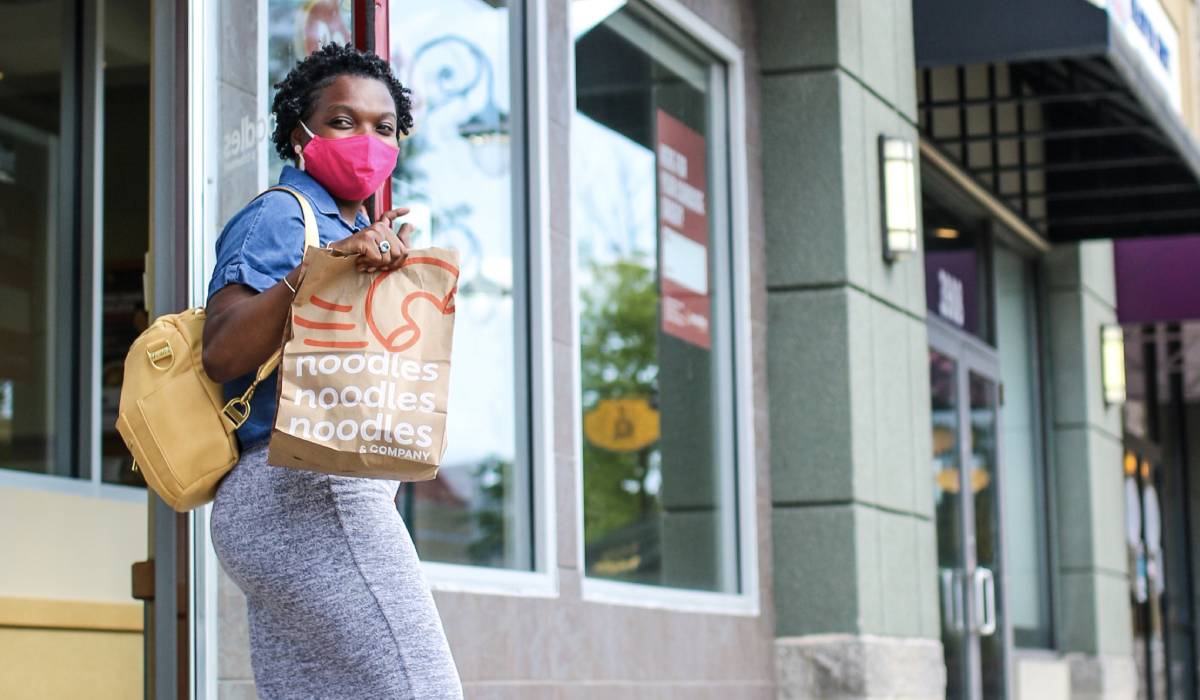Throughout the years for restaurants, progress has stalled on the diversity front. To date, only 8 percent of restaurants are owned by Black people. It’s a figure that inspires the Multicultural Foodservice & Hospitality Alliance’s Pathways to Black Franchise Ownership program alongside 4thMVMT and PepsiCo.
Pathways aims to create 100 Black-owned franchise restaurants by the end of 2023, aided by a $2.5 million commitment by PepsiCo over the next five years. Two major restaurant companies, Noodles & Company and WOWorks (parent of Saladworks and Frutta Bowls) have joined the charge.
Since WOWorks’ formation, strong core values have been at the heart of what the company does, says CEO Kelly Roddy.
“If you want to have strong results, you obviously got to have good brands with good food and all that stuff, but you have to build a great culture,” Roddy says. “Part of building that culture is putting core values in place.”
Pathways presented an opportunity for WOWorks to accomplish another goal as well: closing the food deserts in the company’s core markets.
Two of those, Philadelphia and New Jersey, have long lacked healthy, affordable food for residents in select areas. According to the USDA’s 2017 food access research report, nearly 39.5 million people, or 12.8 percent of the U.S. population, were living in low-income and low-access areas. It’s estimated 19 million people had limited access to a supermarket or grocery store.
Food deserts also are disproportionately located in Black communities, according to a 2014 study from John Hopkins University. In urban areas, Black communities had the fewest supermarkets and white communities the most.
In turn, the Pathways to Black Franchise Ownership program presents a way to continue bringing nutritious food to these areas, Roddy says.
“Our belief is, we should have diverse owners running these restaurants and these food deserts,” Roddy says. “It’s a win win. You’re creating business opportunities for people in these communities. You’re also creating options for healthy food in these neighborhoods. And that’s how the conversation started.”
Noodles & Company likewise joined the Pathways program due to its own people-centric core values, says CFO Carl Lukach. Over the years, Noodles & Company formalized its diversity and inclusion initiatives, creating an Impact Report and an inclusion diversity council alongside taking a CEO pledge to boost diversity.
Women now comprise 56 percent of the Noodles’ operations team as well as 50 percent of its executive team, and the company invested $7.6 million in new team member benefits since the onset of COVID-19.
The Pathways program was a natural extension of Noodles’ franchise and company goals, Lukach says. Additionally, the program encourages a longer perspective than just securing more franchisees from underrepresented groups. It starts from within, fostering an employee at the restaurant level to rise and achieve restaurant ownership, says John Ramsay, VP of Franchise Sales.
In the near future, Noodles & Company plans to go on a road tour to recruit in specific markets.
“We as a restaurant industry have not lived up to represent the community that’s out there,” Ramsay says. “And I think we need to. We think that’s really important as it is in society, for everyone. So we’re very proud to be on the leading edge of this, and are going to use our role as one of the first to interact with our peers, interact with others, share why this is important, help them, help us, and help the industry all move together.”
One key barrier to entry for many underrepresented groups, including Black Americans, to becoming a restaurant owner has always been lack of capital. This often comes down to lower generational wealth rates stemming from slavery and racism. These substantial wealth disparities still persist: in 2019, the typical white family had eight times the wealth of the typical Black family and five times the wealth of the typical Hispanic family, according to a survey from the Federal Reserve.
Noodles’ approach is to work with lenders and nonprofits with similar values in order to bridge the gap, Ramsay says.
“We believe that partnering with the lenders, with the nonprofits, is going to create a whole new channel of capital that’s never been there before,” Ramsay says.
As WOWorks actively searches for candidates under this initiative, the company will help match franchisees with the right brand and market. Additionally, franchise and training fees will be lifted so that those without the financial backing can more easily find their path to restaurant ownership as well.
“This is a very white male dominated industry, and that’s who has to make the difference,” Roddy says, adding that the leaders in charge are ultimately the ones who have to take action to level the playing field.
More than a company values or social equity issue, there are business advantages to driving greater diversity and inclusion in a company. Amid an overarching restaurant labor crisis, being a workplace with true diversity and inclusion helps both acquire talent and keep it.
“It really is a competitive advantage and a core competency of the company,” Lukach says. “We think that it’s a very strong driver of retention for our existing team members, allowing folks to show up as their authentic self and to be very proud of who they are and that they work at Noodles.”
Pathways will be an integral piece of Noodles & Company’s growth moving through 2022 as it aims for franchise growth and roughly 8 percent total unit growth.
“I just think that you have to start,” Roddy says. “Every good idea is just an idea until someone takes action.”









